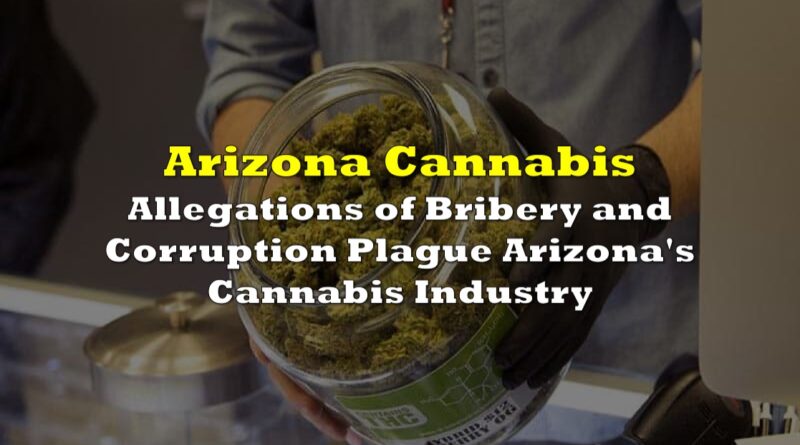In Arizona, the burgeoning marijuana industry has found itself embroiled in a controversy that threatens to tarnish its reputation. Multistate operator Trulieve Cannabis (CSE: TRUL), which oversees 21 dispensaries in the state, recently filed a lawsuit against former employees, shedding light on a troubling “commercial bribery” scheme.
Industry insiders reveal that such practices have become alarmingly common, with independent marijuana brands resorting to various means to secure coveted shelf space in dispensaries, including lavish gifts, cash, and questionable deals.
Demitri Downing, CEO of the Arizona Marijuana Industry Trade Association (MITA AZ), asserted that these practices all boil down to one concept: paying for shelf space, one way or another. This revelation has sent shockwaves through the industry, prompting a closer look at the dynamics of Arizona’s marijuana marketplace.
As of now, Arizona boasts 169 recreational and 137 dual medical-recreational dispensaries, with approximately eight major players controlling nearly half of them. Trulieve, Curaleaf Holdings, Mint Cannabis, JARS Cannabis, and Nirvana Cannabis Co. are among these influential industry giants. However, their dominance has led to a stark imbalance in the market, leaving smaller, independent brands struggling to secure a spot on dispensary shelves.
Downing explained that the larger companies, backed by their in-house brands, have little incentive to accommodate smaller players. Consequently, many independent brands only exist because they are allowed to sublease space within facilities owned and operated by vertically integrated companies. The competition becomes even more challenging as larger companies barter their own products for space in peer-run dispensaries, creating an additional barrier that smaller brands find difficult to overcome.
Arizona cannabis attorney Jon Udell, who has assisted independent brands entering the market, highlighted the gravity of the situation, asserting that this corruption has persisted for years and adversely affected independent brands.
“We’ve known for a long time this has been happening. And it’s causing really serious problems for a lot of [the independent brands],” Udell said.
Subleases in this environment can cost anywhere from $350,000 to $600,000, a hefty price for independent brands struggling to find their footing. Furthermore, obtaining a state-issued vertically integrated permit on the secondary market can set them back a staggering $8 million to $20 million. This creates a vicious cycle where startups, armed with innovative products and limited venture capital, fail to secure enough dispensary space and eventually exit the industry.
“Ripe for bad practices”
The consequences of this troubling trend have not gone unnoticed. As Udell pointed out, it’s time to reflect on the industry’s development, market structure, and accessibility. These issues could potentially pave the way for direct-from-manufacturer-to-consumer laws in the future.
One independent Arizona brand operator, speaking on condition of anonymity, described the market as “ripe for bad practices,” with monopolies enabling such behavior. This trend of failing brands being swiftly replaced by newcomers has become a stark reality, dampening the hopes of many aspiring entrepreneurs.
Though not the entire market is corrupt, it has become increasingly challenging to navigate. However, Curaleaf is singled out as one multistate operator that has maintained a reputable standing among independent Arizona brands. Some smaller independent retailers also continue to evaluate brands based on merit rather than engaging in a pay-to-play system.
Overall, the Arizona market remains a tough puzzle to solve, primarily due to its limited licensing structure. Udell is championing the cause for more license types issued by the state and increased accessibility for retailers. While it’s a daunting task to gather enough support for such monumental changes, it’s a step he believes is necessary to level the playing field and address the deeply rooted issues plaguing the industry.
Earlier this month, Trulieve revealed in a filing that it is using the lack of interest in the cannabis sector to its advantage by repurchasing a number of senior secured notes which are publicly traded. The company collectively repurchased $57.0 million worth of face value notes for a figure of $47.6 million, a 16.5% discount to par plus accrued interest.

